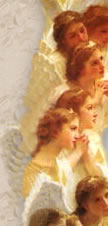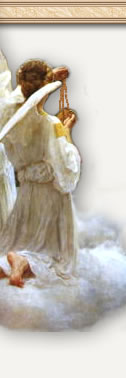




 |
|

|
|
|||||||||||
|
|
|
|
||||||||||||
 |
|
|
||||||||||||
 |
|
 |
|
|||||||||||
|
|
||||||||||||||
 |
 |
|
|
|
|
Words of Father Faber for Modern Catholics In times of seemingly unending crisis, apostasy, and scandal like the present, it is perhaps natural for orthodox Catholics to see our situation as unprecedented in history. In our discouragement, we sometimes idealize more stable periods in the history of the Church as golden ages that will never come again. We may even pessimistically conclude that spiritual writers of the nineteenth or early twentieth centuries could have little to say to our time since they lived in such happy religious circumstances and experienced none of our tragic difficulties. It is somewhat surprising, then, and very consoling at the same time, to find that one of the most popular spiritual writers of Victorian England has indeed much to say to our time and our situation. One might expect works of spirituality written for the Englishmen of the 1850s to be somewhat dated and perhaps largely irrelevant to American Catholics of 2002, but this is certainly not the case with the works of Father Frederick Faber. It is surprising, in fact, to find how strikingly Father Faber’s words apply to the conditions of our own day, and how telling some of his trenchant comments appear in the context of the post-Vatican II Church. While this is not the place to detail the life and career of Father Faber, it should be mentioned that he was for years an Anglican clergyman before following John Henry Newman and other Oxford acquaintances into the Church. Intellectually brilliant, sensitive, poetic, he found the double experience of conversion to Catholicism and rupture with his Anglican past intensely painful. In the end, he preached his last sermon in his Anglican parish and left, taking a good part of the parish with him into Catholicism. He was, with Newman, co-founder of the Oratory in England, remaining in London while Newman headed the Birmingham Oratory. His prodigious output of sermons, poems, hymns, and books, as well as the crushing work connected with the crowds who flocked to the Oratory and the direction of the new religious community, were all accomplished in the teeth of nearly constant pain and illness – newly diagnosed near the end of his life, but far too late to relieve his suffering or to save him from an early death at the age of 49. Faber’s style has been compared to that of Dickens, and it is only fair to note that some modern critics, including his most recent biographer – writing, significantly, in the 1960s – have found it exasperating. Indeed, there have been attempts at “updating” his books; like the liturgical barbarities of ICEL, these banal adaptations to contemporary taste have little of the elegance and attraction of Faber’s style. (The recent editions of Faber’s works by Tan Publishers are, fortunately, reprints of the original works.) None of his books are especially difficult to read, though all are grounded in solid doctrinal and mystical theology, which the reader absorbs almost without realizing it. The lively anecdotes of the saints, the moving descriptions of incidents in Our Lord’s life, the humor, and the intensely practical suggestions combine to make each of his treatises balm for the weary soul. The discussion that follows is not intended to explore Father Faber’s approach to the spiritual life, which would be a study in itself. Most of the points mentioned below are not actually the themes of his books but incidental observations. They show, however, that the world of his day and the problems faced by Catholics then were not so different from those encountered in our own daily lives. I have focused on three themes that appear in one or more of Father’s spiritual treatises: the worldliness and paganism of modern society and its effect on Catholics; the consequent temptation to compromise on matters of Faith; the root cause of the disorders in both society and the Church. There were, of course, many differences in the situation of Catholics in that time and in our own. Father Faber did not have to suffer qualms about the orthodoxy of statements coming out of Rome, nor was he deprived of the Mass. In one of his best-known passages, from The Blessed Sacrament, he refers to the “miracle” of the “facility of consecration”: “When a saint works miracles, first of all he is a saint, and that is to be remembered, for it tells of long years of prayer and conflict, and modest secrets of corporal austerity. So if long fasting, and great learning, and much toil, and vigils of preliminary ceremony were necessary before consecration, it would seem an easy exercise of power when we consider the stupendous majesty of the work performed. But no! Five little words and it is done! What more easy? Marvelously easy, we might have thought dangerously easy, dangerous for our own faith, dangerous for our own reverence! So it might be if that most beautiful of all things outside Heaven, the Latin rite of the Adorable Sacrifice, had not come forth out of the grand mind of the Church, and lifted us out of earth and out of self, and wrapped us round in a cloud of mystical sweetness and the sublimities of a more than angelic liturgy, and purified us almost without ourselves, and charmed us with celestial charming, so that our very senses seem to find vision, hearing, fragrance, taste and touch, beyond what earth can give. Thus, may I dare to say it? In the Roman rite the Church has at once so guarded us and so nursed our Lord, that she has made herself a loving and a thoughtful Mother, even to Him in those His daily new births as well as to ourselves.” Much could be said about this passage that will have to await another occasion, but surely there is a note of unconscious prophecy here? Faber is saying that if the simple formula of Consecration is not surrounded with the pure and sublime protection of the traditional Latin rite, we could begin to treat it with irreverence or lose faith in it. This is, of course, precisely what has happened since the suppression of the Mass Father Faber was describing. Would that Paul VI had listened to him! In many sections of his several books, Father Faber describes the uncongenial atmosphere in which modern Catholics live. In the bloated metropolis of London where Faber lived and worked, business, worldly entertainment, and fierce competition for professional and social status drove all social classes at a feverish pace; anti-Catholic prejudice was deeply entrenched, and Catholics themselves suffered from both secularist influence and the desire to compromise with the Protestant milieu in which they lived. Infatuation with scientific discovery and progress was becoming a substitute for religion (a position it still holds). “My work,” he wrote in All for Jesus, “lies in the largest, and probably the most luxurious city in the world, and in an age of fearful effeminacy and self-indulgence.” Certainly this sounds a contemporary note; the “fearful effeminacy and self-indulgence” of our age would have appalled Father Faber, but his remedy would no doubt have been the same: to show souls the attractions of the spiritual life and how they can live it and be saved no matter what the condition of the world around them. In English society in the 1850s, as in ours, God was “an inconvenience in His own world, an impertinence in His own creation. So He has been quietly set on one side, as if He were an idol out of fashion, and in the way. Men of science and politicians have agreed on this, and men of business and wealth think it altogether the most decent thing, to be silent about God; for it is difficult to speak of Him, or have a view of Him, without allowing too much to Him.” One of Faber’s difficult tasks was to make people aware of the secular attitudes unconsciously adopted by Catholics: “We live in an heretical country, and it is hard to live among the icebergs and not be cold.” In such an atmosphere, the Catholics of Faber’s time tended to act like worldlings: “They think they are to do everything by their own cleverness, or by bustle, fidget, and activity. They think the same things which made England a great proud country will suit the interests of Jesus and advance His kingdom on earth.… If Catholics attempt anything, and little seems to come of it, they are cast down, and think it has come to naught. A mission is given, one soul is saved, or one sin prevented; it was a fortnight’s work and it cost ten pounds one way or another. What a failure! Yet to hinder that one sin from soiling His Father’s glory, Jesus is ready to come down and be crucified again!” In The Blessed Sacrament, Father Faber returns to the problem of outnumbered Catholics living in a secular society, and describes their (and our) dilemma: “Holy Scripture describes life very touchingly as a weary land…. So it is in religion. We cannot live among unbelievers, and enjoy that bright life of the spirit which belongs to those who dwell in ages and regions of faith. They, who lingering in domestic Edens they are loath to leave, consort much with those who are not children of the Church, soon become evidently the worse for it, the moment they live at peace with them and cease trying to convert them. Faith, like holiness, suffers a sort of enervation from such society, and languishes in an uncongenial atmosphere. Hence people get strange views about the easiness of the salvability of heretics, and at last sink to making the kindliness of a doctrine the measure of its truth, and that not kindliness to our dearest Lord or to His one Church, but to those who are not His or hers.” Is there a family left among us that does not include at least one unbeliever, whom everyone agrees, out of “kindliness,” not to annoy with awkward religious questions? Despite the baneful influence of secular English society on Catholics, which he sees so clearly, Father Faber takes a sympathetic view of most Englishmen of his day. The Creator and the Creature contains a description that could apply to modern American society. Because of the timeliness of his analysis, I cite several passages: “[T]he great mass and multitude of the English people are to be regarded rather as heathen than as heretics, and are therefore entitled to the more kindly view which the ancient fathers took of those without the fold. So far they are in better case than the heathen, because they possess, at the least implicitly, a belief in so many of the principal doctrines of the Christian faith. The present generation, we speak of them in the mass, have no determinate choice of error rather than truth, no self-will, no obstinate, perverse adherence to the principles of a sect…. Their religious errors are the traditions of their forefathers, and they know no others.… They have no more notion that such a state of things exists on the surface of the earth as we know the inside of the Catholic Church to be, than they know how the angels spend their time, or what the glory of the third heaven is like. They look on us, as an old heathen did, who believed that Christians met early in the morning to slay infants and to eat their flesh; and of such sort is their conviction…. They have the word God, and an idea attached to the word, and a sense which goes along with the idea; but, if we may so speak, He is as much a different God from ours, as the old Christian’s Father of our Lord Jesus Christ was from the Jupiter Tonans of the poor heathen, or the Primal Cause of the proud philosopher.” Faber therefore urges compassion for his compatriots, as future converts, “as poor wanderers in darkness who want to be taught rather than controverted, and who above all things desire to have their sins forgiven, if they only knew the way.” With his sympathy goes a grave and timely warning that would seem to be sadly needed in today’s Church: “But one word, one look, which goes to show that being in the Church and being out of the Church are not as fearfully far asunder as light from darkness, as Christ from Belial, will rob God of more souls than a priest’s life of preaching or a saint’s life of prayer has won…. If charity then, both in heaven and on earth, both for time and for eternity, is the most excellent of gifts, how sad must be the desolation, how wide the ruin, how incurable the wound, of spurious charity, which satisfies its own worthless good-nature at the expense of God’s truth and its neighbor’s soul?” In The Blessed Sacrament, writing of the Church as Christ’s Body, he writes: “Earth has no privilege equal to that of being a member of His Church; and they dishonor both it and Him who extenuate the dismal horrors of that outer darkness in which souls lie that are aliens from the Church. The greatness of our privilege, and therefore of the glory of the Sacraments, is necessarily diminished by anything that makes less of the unutterable miseries, and most appalling difficulties of salvation outside the Church.” What would he think of those fearful Vatican statements to the effect that heretical sects are themselves means of salvation for their members, or that some categories of schismatics and nonbelievers are not to be converted? For Father Faber, mindful of the anti-Catholic society in which he lived, “touchiness about the interests of Jesus is shown in the delicate perception and keen abomination of heresy and false doctrine.” (Abomination, not dialogue and “agreed statements.”) Error within the Church was a similar source of distress: “The purity of the true faith is one of the very dearest interests of Jesus; and, consequently, one who truly loves his Lord and Master is pained beyond the power of words by the expression of false doctrine, especially among Catholics. Opinions about our Lord’s ignorance, or in depreciation of His grace, or in derogation of his Mother’s honor or lowering the sacraments, or dishonoring ever so little the prerogatives of His Vicar upon earth – these things, merely in passing conversations, sting him so that he feels even bodily suffering from them. Unreflecting people are almost scandalized at this…. Thus you will not find a single saint who has not cherished this pain of love in his heart of hearts, this inability to endure the sound of heresy or false doctrine: and where this is not, then, as sure as the sun is in the heavens, the love of Jesus is but poor and weak in the heart of man.” He loses patience with Catholics who refuse to exert themselves for the interests of God, while confidently expecting Heaven after they die (much like the everybody-goes-to-Heaven mentality of today). “You cannot stand aloof from the cause of Jesus on earth, and even keep up a sort of armed neutrality with God, when you desire as soon as ever you die, without so much as tasting the sharpness of purgatory, to be locked in His closest embrace of unutterable love for evermore. Yet this is the plain English of the lives of most Catholics. And can anything be more unreasonable, more ungenerous, more mean! And you wonder we have not converted England! Verily we do not look like a people who have come to kindle a fire upon the earth, nor to be pining because it is not kindled!” The obstacles to a full spiritual life are not only external; Catholics have internalized the poison of many modern ideas: “[T]he epidemics of the world are never altogether unfelt within the Church.” For example, “We are so beset with the notion of our own rights, the monomania of our times, that it actually disturbs and perplexes our relations with God, and confuses our theology. We have so many rights defined and undefined, and in this country, as an unpopular minority, we fight so disproportionately for them, that we come to look on almost everything which happens to us as a right.” “Liberty is another idol of the sons of men, and one whose is of all false worships the least blameworthy, although the greatest of crimes have been perpetrated in its name.” “Dignity we have, and superabundantly, and we ought never to forget it. But then we must remember also that the creature man has no dignity except in the love of Him who made him.” How often does Rome speak to us of the “cult of man” and the rights and dignity of man, but when was the last time you heard about the only source of our rights and dignity? In Growth in Holiness Father Faber returns to the subject of English effeminacy, luxury, and worship of bodily comfort, in words that might apply to the future conversion of our country as well: “I believe, if this unhappy land is ever to be converted, of which there are many hopes and no signs, it will be by some religious order or orders who shall exhibit to a degraded and vicious people the vision of evangelical poverty in its sternest perfection. The land that has forsaken Christ must gather to the Baptist first, and be attracted to the Jordan by the simplicity of supernatural strictness and antique austerity. Other things can do much, intellect, learning, eloquence, the beauties of Catholic charity, the sweet influences of a purified literature, the studiousness of a simple and apostolic preaching. But the great work, if the great work is in the counsels of God, I much think is a triumph in this land reserved only for evangelical poverty.” Of his final work, The Creator and the Creature, Father Faber wrote that “it stands to the Author’s other works in the relation of source and origin”; it is his masterpiece. It is here that he analyzes in depth the basic cause of modern apostasy and moral degeneration, which is the forgetfulness, or the outright refusal, of man to recognize what it means to have a creator and to be a creature. This failing affects Catholics as well as those outside the Church: “Now this error reaches faintly and feebly into the hearts of true believers. There is always in the Church a kind of evil echo of the noise which the world is making without.” There is so much of value and relevance in this book that timely quotations would nearly equal the text itself. I will end with a few lines from Father Faber’s summary of what worldliness is and how it operates, a passage that seems to describe its essence: “It is a false faith, a false religion. It does not recognize the right of the Creator, nor occupy itself with the duties of the creature. It begins with self and ends with self, and if compelled to lodge an appeal outside itself, it appeals to the judgments of human respect.… The creature forgets himself, and makes himself the standard of truth.” “Worldliness only requires one condition for its success, that we should not fear it.” Following a brilliant diagnosis of what sound like our social ills as well as those of his day, Father Faber goes on to discuss the two choices we have regarding how to look at the world – the dark view and the bright view – and how our spiritual lives are affected by the one we adopt. One suspects which view he favors when he describes the dark view as “a funeral on a wet day in a disconsolate churchyard,” but the last section of the book is actually a heartening discussion of the merit of both attitudes, the saints formed by each, and how we – even we – may, with God’s grace, avoid the pitfalls described above, and come to love and hope in our Creator: “And we are free, and we are in earth’s fair sunshine, and our heart is full of a little but most true love of God, and a whole world of God’s blessed love is resting on our single heart – and shall we doubt, shall we hesitate, shall we tremble, shall we be chilled in the midst of all these fires of love?”
|
|



♦ About The Mass ♦ Resources ♦ How To Help ♦ Contact Us ♦